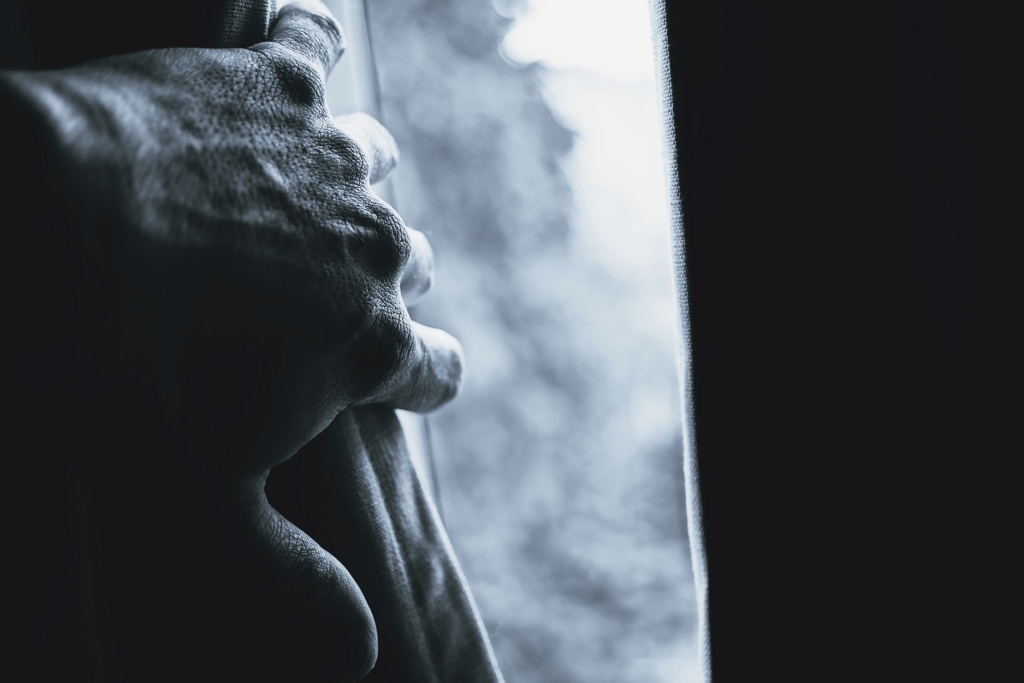[Into the abyss]
So many nightmares – too many to count.
Where each breath takes an eternity.
Where every moment is raging against me.
Screaming at me to do something – to say something.
I cannot. I am frozen and so lost in this darkness.
Nights where I’ve woken gasping, grabbing at something anything to tether me to reality.
To prove I’m no longer dreaming.
Knowing I’ll soon have to fall asleep again.
Where my strength is my greatest enemy.
Where my weakness is everything I know.
Slipping back into the grasp of the abyss.
In the abyss my dreams will roam, and my nightmares it calls home.
____________________________
I’m trying to better understand these days what it is I have learned from the accident. Which means I’m looking for the answers in the most unlikely places.
Like my nightmares.
Nightmares–those threatening or scary dreams that leave you crying out in your sleep, thrashing around in your bed or waking up in a blind panic, soaked in sweat and with your heart pounding in your throat.
Anyone can experience nightmares or night terrors, but as many as 75% of people with post-traumatic stress disorder (PTSD) suffer from vivid nightmares that can feel overwhelmingly real. And unlike garden-variety bad dreams, those nightmares are more likely to involve physical thrashing or other bodily movements.
PTSD dreams are usually exactly the same as the real life events sometimes with small parts changed and produce strong emotional responses. Being repetitive in nature they generally will continue on and on until the person has fully let go of the trauma-event sequence.
According to dream experts, post traumatic nightmares, can be seen in terms of evolution, as a part of the flight or fight mechanism gone awry.
People sometimes turn to alcohol or illicit drugs to “escape” the nightmares or their chronically poor sleep quality leads to other problems such as depression and anxiety. Others start to fear sleep or simply don’t function that well—they lose jobs, are irritable and short tempered with their loved ones, feel tired and lack energy.
The nightmares and poor quality sleep chips away at their lives over weeks, months and years.
Typically in healthy people, deep sleep is kind of like therapy. It's an adrenaline-free environment where the brain can process its memories while sort of stripping off their sharp, emotional edges. You come back the next day, and it doesn't trigger that same visceral reaction that you had at the time of learning.
Emotions are useful. They show us what really matters to us. The moment may be your first kiss and the emotional excitement you felt, or it may be your first break-up and the sadness you felt. Most of us are able to let go of that emotional blanket around those memories forever. In many ways they've done their job at the time of learning, then it's time to hold on to the information of that memory, but let go of the emotion.
In people with PTSD, deep sleep can be broken. The adrenaline doesn't go away like it's supposed to. The brain can't process tough memories, so it just cycles through them, again and again.
Over time and with the support of mental health professionals and medications like prazosin, most people with PTSD will experience a diminishing of the frequency and intensity of nightmares. As the trauma is resolved there is less focus on the events that occurred and the dream sequence will be mingled in with every day events.
On a personal level I have begun to explore this possibility that my dreams can be fuel for personal growth and healing. The question remains, can the self-organizing process that happens in dreams be part of the process for understanding our traumatic experiences? If so, then I have reason to be hopeful.
Until next time.

